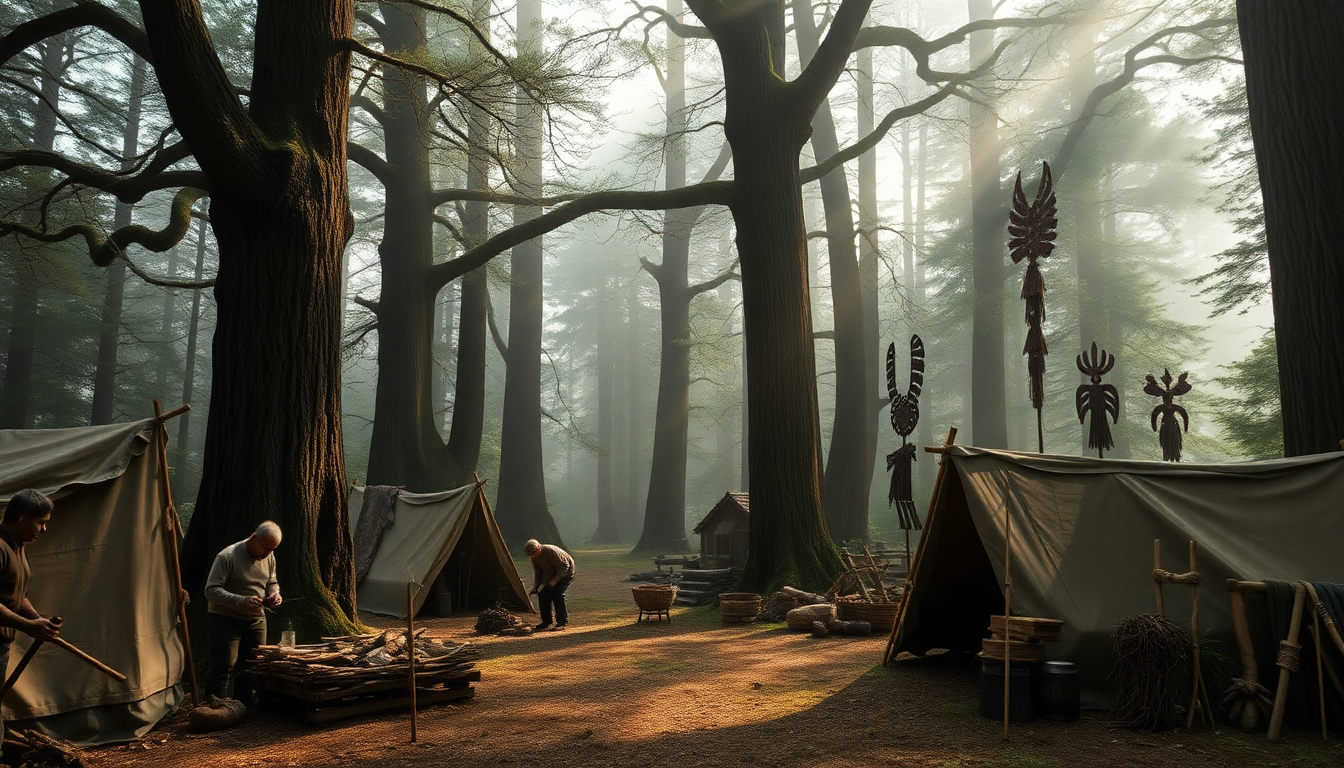Table of Contents
In a surprising twist, a woman who went missing in Texas has been found living with a group that identifies as the Kingdom of Kubala, a community nestled deep in the woodlands of Scotland. This intriguing band, led by King Atehene, has piqued the interest of both locals and authorities, claiming to reclaim ancestral lands that were lost centuries ago. But what does this all mean for identity, culture, and the fabric of modern society?
The Kingdom of Kubala: A Claim to Ancestral Heritage
The Kingdom of Kubala insists that their roots in Jedburgh run deep, claiming that their ancestors were forcibly removed from the Highlands over 400 years ago. The group is made up of King Atehene—who was previously known as Kofi Offeh, an opera singer—along with his wife, Queen Nandi, and their handmaiden, Asnat, who has been identified as Kaura Taylor from Texas. In a heartfelt video message, Taylor expressed her wish to remain undisturbed, emphasizing her autonomy as an adult. But how does one define autonomy in a world that often imposes its own rules?
According to the Kingdom, they live by their own laws and do not recognize local legal authority. King Atehene has been vocal about their allegiance to what he calls divine laws, claiming a connection to a higher power, Yahowah. This decision to reject local governance has led to clashes with authorities, resulting in eviction notices and even violent confrontations, including an incident that destroyed their camp. Isn’t it fascinating how different interpretations of law and community can lead to such conflicts?
Cultural Practices and Community Life
King Atehene describes the lifestyle of the Kingdom of Kubala as one of simplicity and a return to nature. They claim to live off the land, bathing in natural springs and relying on the Creator to meet their needs. It’s a lifestyle that emphasizes a deep connection to nature, with the king stating that their daily practices are spiritually grounded and driven by an ancestral calling. But in a world dominated by technology, can such a lifestyle really thrive?
The group also identifies as a lost tribe of Hebrews, claiming royal lineage that traces back to King David. This identity comes with a narrative of historical oppression, specifically mentioning the deportations during the reign of Elizabeth I. They believe they are on a prophetic mission to reclaim their heritage and to bring other lost tribes into their fold. What does it mean to reconnect with a past that feels both distant and immediate?
Challenges and Community Response
Local authorities have responded in various ways, with the Scottish Borders Council collaborating with Police Scotland to address the ongoing situation. They have provided housing advice and support services, but despite these offers, the Kingdom of Kubala remains firm in their claim to the land they assert as their own. How do you reconcile community needs with individual claims to land?
Even in the face of eviction and conflict, the group stands resolute in their mission. Queen Nandi has echoed her husband’s sentiments, stressing their determination to claim Scotland as their homeland and highlighting the significance of their cultural identity. Their story is one of resilience, deeply rooted in historical grievances and a yearning for recognition. Does this resonate with the ongoing struggles for identity that many people face today?
The tale of the Kingdom of Kubala offers a thought-provoking look at identity, belonging, and the complexities of cultural claims in contemporary society. As they navigate their existence in the midst of local governance and societal norms, their journey raises fundamental questions about community, heritage, and the ever-evolving search for identity. In a world where belonging can sometimes feel elusive, what does it mean to truly find home?


